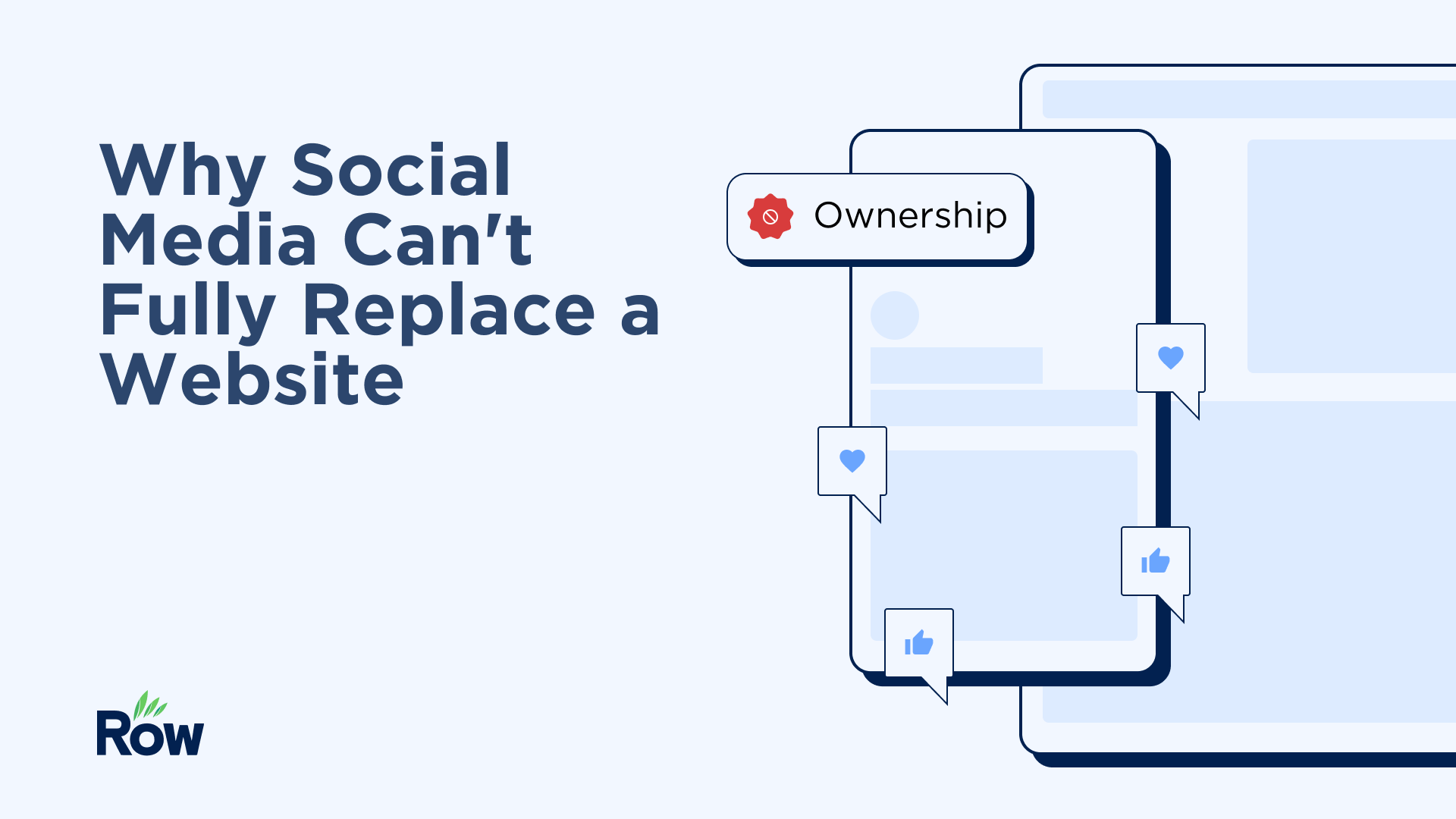Why Social Media Can’t Fully Replace a Website
Social media platforms have become powerful tools for individuals and businesses to connect with their audience. However, while social media offers numerous benefits, it falls short of a complete replacement for a dedicated website. In this article, we will explore the reasons why social media platforms should not be relied upon exclusively and why having a website is essential for a comprehensive online presence.
Written by: Row Business Solutions

Limited Control
One of the primary drawbacks of relying solely on social media platforms is the limited control they offer. Users have little say in the platform's features, design, and functionality. Terms and conditions, algorithms, and policies can change at any time, potentially impacting your reach and visibility. In contrast, having a website provides complete control over its design, content, and user experience, enabling you to create a unique and tailored online presence.
Branding and Customization
Social media platforms provide limited opportunities for branding and customization. Your profile or page on a social media platform typically follows a predetermined template, making it challenging to establish a distinctive identity or brand experience. On the other hand, a website offers the freedom to design and tailor branding elements, layout, and content to align precisely with your specific goals and objectives, allowing for a cohesive and immersive brand experience.
Lack of ownership
Relying solely on social media platforms means renting space on someone else's platform. The content you publish is subject to the platform's rules and regulations, posing a risk of account suspension or closure. Having a website provides a sense of ownership and independence, giving you full control over your content and its availability. You have the freedom to choose your hosting provider and ensure the long-term sustainability of your online presence.
Content Organization and Discoverability
While social media platforms excel at quick, real-time updates and interactions, they may not be ideal for organizing and presenting complex information effectively. These platforms offer ways to categorize and tag content, but creating a comprehensive content structure can be challenging. In contrast, a website allows you to structure content hierarchically, create navigational menus, and optimize your site's architecture for better discoverability and user experience, making it easier for visitors to find and engage with your content.
Analytics and Insights
Social media platforms provide basic analytics and insights into audience behavior, engagement, and demographics. However, these insights are often limited and vary across platforms. Having a website allows you to integrate robust analytics tools that provide comprehensive data on your website visitors, their interactions, conversion rates, and more. This valuable data empowers you to make informed decisions, improve your online presence, and better understand your audience's needs and preferences.
Long-Term Sustainability
Social media platforms rise and fall in popularity, and their relevance can change over time. Relying solely on these platforms puts your online presence at the mercy of shifting trends. In contrast, having a website provides a stable online presence that remains unaffected by the changing landscape of social media. Even if a particular platform loses popularity, your website remains accessible, and you can adapt to new trends and technologies without losing your entire online presence. A website ensures long-term sustainability and allows for seamless adaptation to the evolving digital landscape.
Conclusion
While social media platforms offer undeniable benefits for connecting with your audience, they cannot fully replace the importance of having a dedicated website. Social media should be seen as a valuable supplement to a website rather than a standalone solution. A website provides you with greater control, customization, ownership, and long-term sustainability, serving as a central hub for your brand. By investing in a website, you can showcase your offerings, engage with your audience, and establish a unique online identity that stands the test of time.





